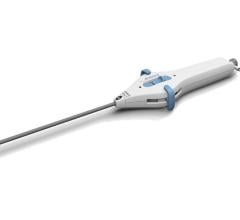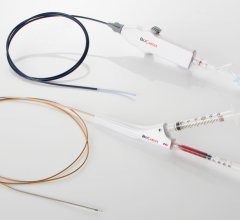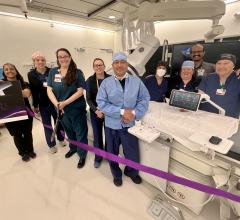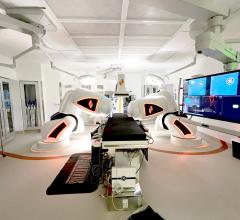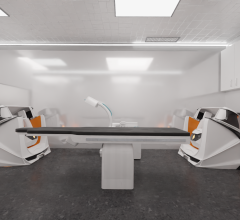
February 27, 2009 - Dr. Alberto Interian Jr., medical director of the Mercy Hospital Arrhythmia Syncope Center, is the first doctor in Miami-Dade County, FL to implant an innovative cardiac monitoring device for patients with irregular heart rhythms (arrhythmias), or recurrent, unexplained fainting (syncope).
The Medtronic Reveal XT Insertable Cardiac Monitor (ICM) device monitors patients 24 hours a day, every day for up to three years, recording important cardiac rhythm trend data that may allow a physician to confirm or rule out an abnormal heart rhythm more definitively than other tests.
“Cardiac arrhythmias are unpredictable,” said Dr. Interian. “The Reveal XT device gives me a long-term monitoring option that further assists me in making a diagnosis and determining the appropriate treatment for my patients.”
Physicians may choose the Reveal XT monitor for their patients with suspected arrhythmias in difficult-to-diagnose patients for whom long-term cardiac rhythm trending data may aid in a more informed diagnosis; or in syncope patients with known or suspected atrial fibrillation (AF), where the heart quivers and cannot effectively pump blood to the body’s organs.
The ICMs are also an option for physicians seeking to detect the presence of atrial arrhythmias (irregular heart rhythms in the upper chambers, also known as AT), including asymptomatic episodes, or to monitor the amount of time a patient is in AT/AF to assess whether medical treatment is necessary or should be adjusted.
Placed just under the skin of the chest area using local anesthesia during a simple outpatient procedure, the device weighs just 15 grams and is approximately the size of a jump drive. Unlike a pacemaker or implantable cardioverter-defibrillator, there are no leads or tiny wires that extend from the device into the heart’s chambers. To store an electrocardiogram (ECG), a patient places a hand-held, pager-sized assistant over the device and presses a button. The physician can then analyze the stored information, transmitted via the Medtronic CareLink Network or during an in-office patient visit, and determines whether the episode was caused by an abnormal heart rhythm.
For more information: www.mercymiami.org


 January 29, 2026
January 29, 2026 



